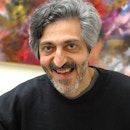Randomness
- Speaker
-
 Avi Wigderson, Ph.D.Princeton University
Avi Wigderson, Ph.D.Princeton University
Presidential Lectures are free public colloquia centered on four main themes: Biology, Physics, Mathematics and Computer Science, and Neuroscience and Autism Science. These curated, high-level scientific talks feature leading scientists and mathematicians and are intended to foster discourse and drive discovery among the broader NYC-area research community. We invite those interested in the topic to join us for this weekly lecture series.
By clicking to watch this video, you agree to our privacy policy.
Is the universe inherently deterministic or probabilistic? Perhaps more importantly — can we tell the difference between the two?
Humanity has pondered the meaning and utility of randomness for millennia. There is a remarkable variety of ways in which we utilize perfect coin tosses to our advantage: in statistics, cryptography, game theory, algorithms, gambling and more. Indeed, randomness seems indispensable! Which of these applications survive if the universe had no randomness in it at all? Which of them survive if only poor quality randomness is available, e.g. that arises from “unpredictable” phenomena like the weather or the stock market?
A computational theory of randomness, developed in the past three decades, reveals (perhaps counterintuitively) that very little is lost in such deterministic or weakly random worlds. In this talk, Dr. Wigderson will explain the main ideas and results of this theory.
